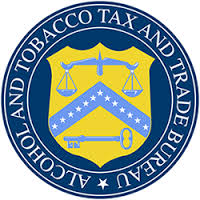OLCC Case Summary: Lotsa Luck Bar & Grill
“Learn from the mistakes of others. You can’t live long enough to make them all yourself. ” –Eleanor Roosevelt
Licensees can learn a lot by reviewing OLCC case decisions. What mistakes are other licensees making? What mistakes are the OLCC making? What lessons can be learned to improve the safety, compliance and success of your business? Here, I am summarizing one lesson that can be learned from a recent OLCC decision.
The Issue. Is an argument between patrons “disorderly activity” under Oregon law? The OLCC argued that an argument between a male and female patron of Lotsa Luck Bar & Grill was disorderly activity.
The Law. OAR 845-006-0347 prohibits licensees from permitting disorderly activities on the licensed premises or in areas that the licensee controls that are adjacent to or outside the licensed premises, such as a parking lot, outdoor seating area, smoking area, area in which patrons wait to enter the premises, etc. Disorderly activities are defined as those that harass, threaten or physically harm another person.
The Facts. A male and a female patron drove to the premises. Video shows that they were arguing from the moment that they exited their vehicle, throughout the time that they were in the premises, and until they exited the premises. They were in the premises for approximately 15 minutes. Neither of them had an alcoholic beverage while at the premises and there is no indication that they were intoxicated. They were arguing in normal voices about everyday issues. At one point, the man told the woman to “get your shit out of my car.” Just prior to leaving the premises, the man told the woman that he was going to “beat your ass.”
Discussion. OLCC staff argued that the “beat your ass” comment constituted disorderly activity. Such a comment could constitute disorderly activity if interpreted as a threat. That being said, the testimony and evidence indicated that the comment was made in a normal voice with no suggestion of physical violence or accompanying physical violence. If the comment would have been followed by physical violence, the statement along with the violence would very likely have been considered disorderly activity. If the comment was made in a threatening manner, but without the physical violence, it would have been a closer call.
If a comment was determined to be “disorderly activity,” the OLCC would still need to show that the licensee “permitted” the activity. I’ve previously highlighted what is required for a “permitting” violation. While that is an issue here, it is not the issue of note.
The Take-Away. Two patrons arguing with normal voice levels and no physical violence does not constitute “disorderly activity” under current Oregon law. That being said, licensees should pay careful attention to patrons that are arguing and if there is any indication that the arguing may escalate to include suggestions of physical threat or violence. While arguing alone will typically not rise to the level of “disorderly activity,” it may be a red flag that things are headed that way. Intervening early may ensure that the argument remains just that. As with many things, licensees and their staff must use sound judgment in light of all of the facts in determining what, if any, action is appropriate. The devil is in the details. Having well written house policies and regular trainings on how to handle such issues will help ensure that such issues do not escalate to the level of an OLCC violation.





